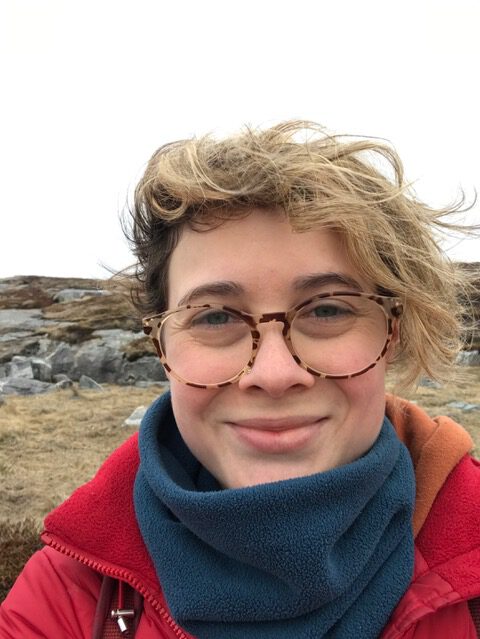Members & Supporters

Lea Beiermann (she/her) co-founded H4F in 2020 when a few historians began to use the #HistoriansForFuture hashtag on Twitter to show their support for the climate movement. She is a PhD candidate in History at Maastricht University, where she researches the history of microscopy in the nineteenth century. She holds a BA in Creative Writing and Journalism from Universität Hildesheim, and an MScRes in Cultures of Arts, Science and Technology from Maastricht University.
Lea tweets for H4F, organises the regular group meetings and writes the group’s newsletter.

Isabelle Schürch (she/her) joined H4F in the summer of 2020. It was a hot summer, and another one for the record books. After having spent a lot of time (too much time?) lamenting the climate crisis with friends and colleagues on balconies and at dinner tables, she decided to do a bit more. That’s when she started looking for H4F and realised that there must be like-minded people out there willing to use their precious but precarious position as academics to collaborate and go beyond the “usual”. That is how she met Lea. As a social historian, she is interested in how “the social” works: Who is included? Who is excluded? And why? It is not really helpful to think in terms of societies and “the environment” as two separate spheres. The climate crisis is not “out there”, it is with us. Isa has been a Senior Lecturer (Postdoc) at the Department of Medieval History at the University of Bern since 2018. After completing her doctorate (National Centre of Competence in Research “NCCR Mediality”, Zurich), she was a Research Assistant in Konstanz. From 2020 to 2021, she was Marie Skłodowska-Curie Postdoctoral Research Fellow (Sheffield). Her research focuses on the history of mediality, late medieval ruling practices and social history. She is currently working in depth on the history of human-animal relations and the limits of social agency in the Middle Ages.
For H4F, Isa is responsible for the forum’s podcast series, which aims at breaking down current research on climate change for a broader public.

Sam Grinsell (he/him) joined H4F in the autumn of 2020. Increasingly frustrated with the lack of urgency in response to the multiple environmental crises currently unfolding, he was glad to find a group of like-minded scholars, activists and researchers. He is a historian of cities and architecture in their relationship to the environment, currently a postdoctoral researcher at the University of Antwerp (funded by the Leverhulme Trust). His academic works focuses on two regions shaped by water: the Nile Valley, where he studies the environmental history of colonial urbanism; and the North Sea, where he studies the ports of Antwerp, London and Rotterdam in the long nineteenth century.
With H4F, Sam is especially involved in the blog, for which he commissions posts on Sustainable Academia and is also co-writing (along with other members of H4F) a series on the latest IPCC report on climate science.

Emily Pawley (she/her) joined H4F in the summer of 2021 while looking for more ways to directly confront the climate crisis. She teaches environmental history, food studies, and the history of science at Dickinson College, an environmentally-focused liberal arts college in Carlisle Pennsylvania, where she holds the Walter E. Beach ‘56 Chair in Sustainability Studies. Emily writes about cultivated landscapes as sources of knowledge and about the histories of capitalism and prediction. Her book The Nature of the Future: Agriculture, Capitalism, and Science in the Antebellum North came out in April 2020. At the moment, she is focusing on organizing conversations around climate crisis history and pedagogy as well as beginning a project on the long term histories of carbon sequestration. She is a member of the Environmental Historians Action Collaborative, a working group of the Environmental Data and Governance Initiative.
With H4F, Emily is a part of the Policy Workshop organizing team.

Elizabeth Hameeteman (she/her) joined H4F in the fall of 2020, after looking for ways to become more active and create awareness about the wider climate crisis and the fight for justice on all fronts. She recently earned a PhD in History at Boston University. Her dissertation, titled “Pipe Parity: Desalination, Development, and the Global Quest for Water in the 1950s and 1960s,” explored the role of desalination as a seemingly viable adaptation strategy to reduce the impact of water scarcity and climate variability in the post-WWII period. Originally from the Netherlands and now based in Berlin, Elizabeth has a background in Law and American Studies. She is also the Executive Editor and Founder of Environmental History Now, an online platform that showcases the environment-related work and expertise of graduate students and early career scholars who identify as women, trans and non binary people.
At H4F, Elizabeth is co-editor of the blog, and also helped compile the list of resources. She also co-writes (along with other members of H4F) a series on the latest IPCC report on climate science.

Rachel Webb Jekanowski (she/her) is an interdisciplinary scholar working across the environmental humanities, film and media studies, and energy cultures. She works as an Assistant Professor of English at Memorial University – Grenfell in Newfoundland and Labrador, Canada, and holds a PhD in Film and Moving Image Studies from Concordia University in Montréal. Rachel’s research, teaching, and community organizing is strongly informed by a commitment to climate justice and to building a more equitable world.
Rachel is a contributor to the H4Fblog.
Jan Kunnas (he/him) is an independent researcher with a strong belief that we can learn from history in order to make a better future: We do not have time to repeat past mistakes. Instead, we must make amendments for the past, like paying our climate debt. Read Jan’s blog to find out more about his work.
Jan supports H4F.
